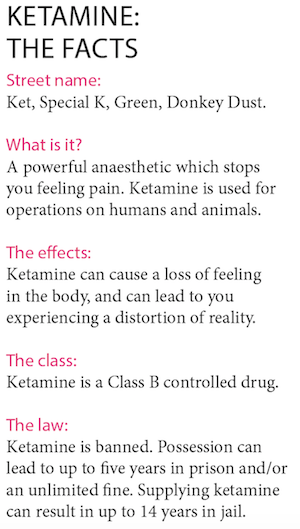Research supports the use of the ‘club drug’ in treating severe depression, but scientists urge caution
Doctors and psychologists are calling for the use of ketamine in treating severe depression to be rolled out nationwide.
At least two million people in the UK live with depression, with approximately 158,000 (roughly 8%) having a severe condition that resists standard treatment options such as
antidepressants or cognitive behavioural therapy.
A treatment centre at Warneford Hospital, Oxford, provides an NHS Foundation Trust ketamine service to people with severe depression, and has found 40% of patients showing continued improvement after taking the Class B substance.
Dr Rupert McShane, who conducted the trials, and whose study was published in The Lancet Psychiatry, says treatment with ketamine could work on patients with severe depression “where nothing has helped before”.
The NHS provides a paid-for service for patients who have been referred by their GP or psychiatrist. Before treatment, patients are assessed by a psychiatrist to confirm their suitability. Initial treatment consists of three ketamine infusions over three weeks. One patient involved in the treatment said: “The first ketamine infusion literally saved my life.” Currently, doctors are allowed to prescribe the drug as a licensed anaesthetic. However, with ketamine being used as an unlicensed treatment for depression, the drug is referred to as “off-label”.

Ketamine’s association as a recreational “party drug” means treatment without sufficient scientific research could possibly lead to a public backlash, and there are concerns Dr McShane’s ground-breaking findings could be shelved without the proper investment for research, drug-testing and the regulating of ketamine prescriptions.
More funding is required to ensure the authorities fully understand how to prescribe the drug, to guarantee patients don’t become dependent on it, and to know the optimum dosage and periods of time to prescribe it for.
Without monitoring, the UK could follow the US in having private ketamine clinics that vary in their clinical checks.
Further research is also required into ketamine’s safety and efficacy before it can be licensed for treatment. We hope to report on more developments in the near future.


Comments